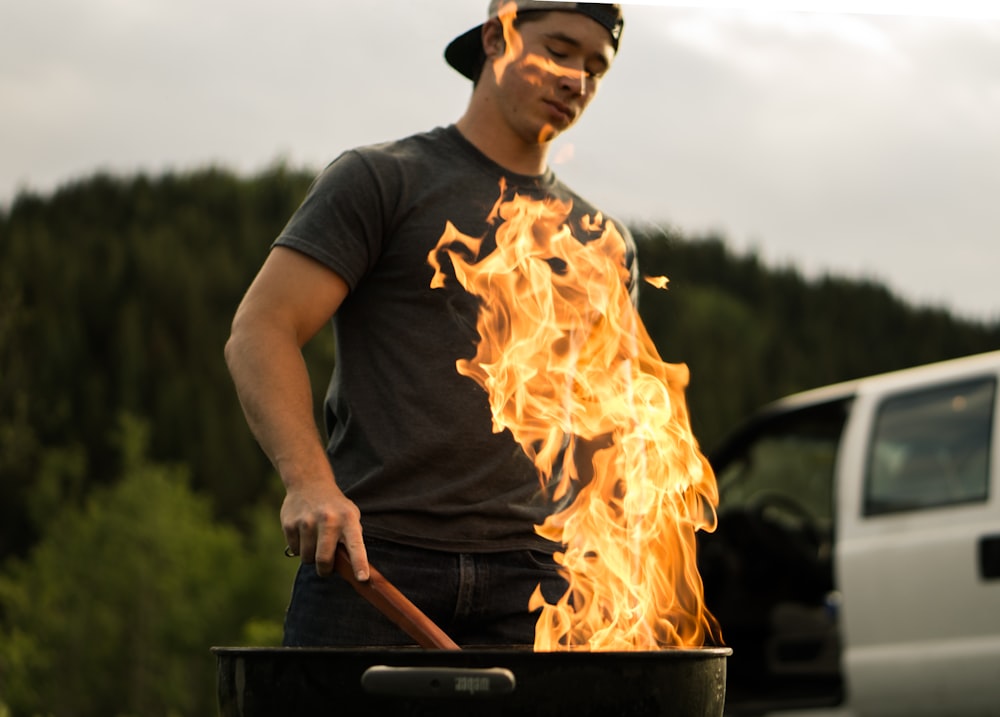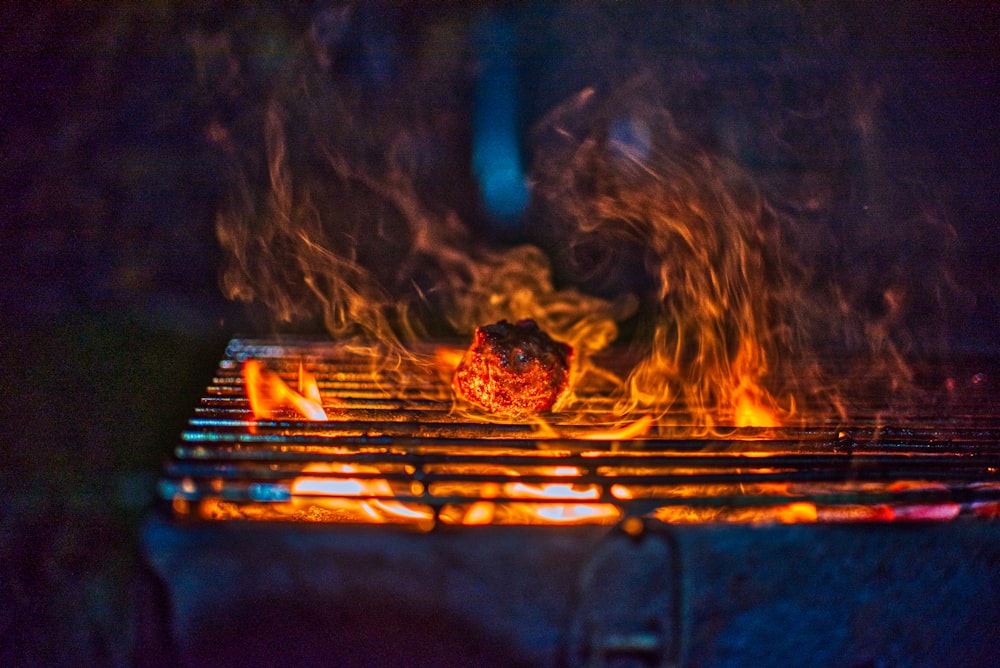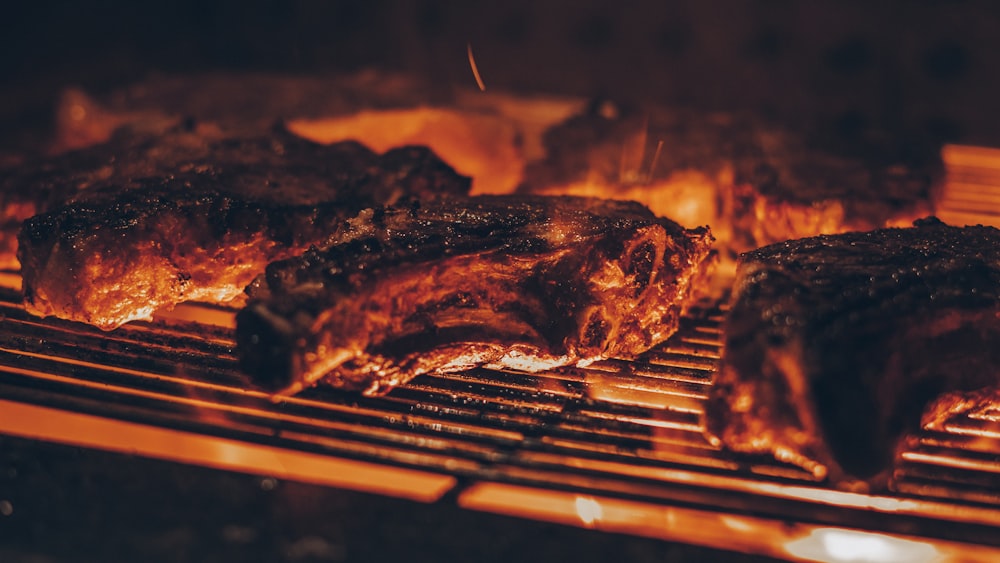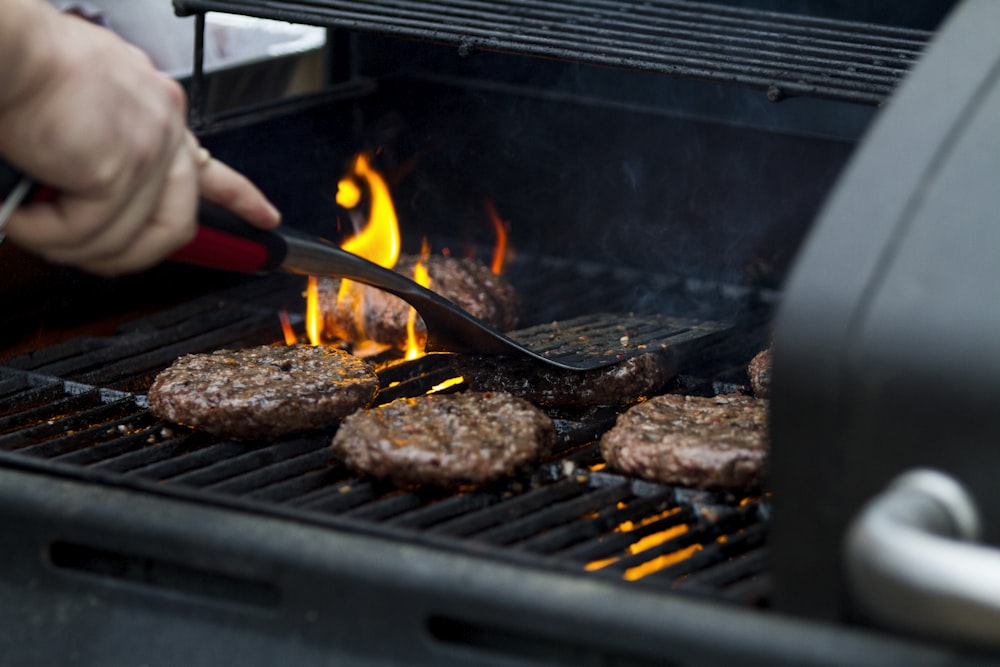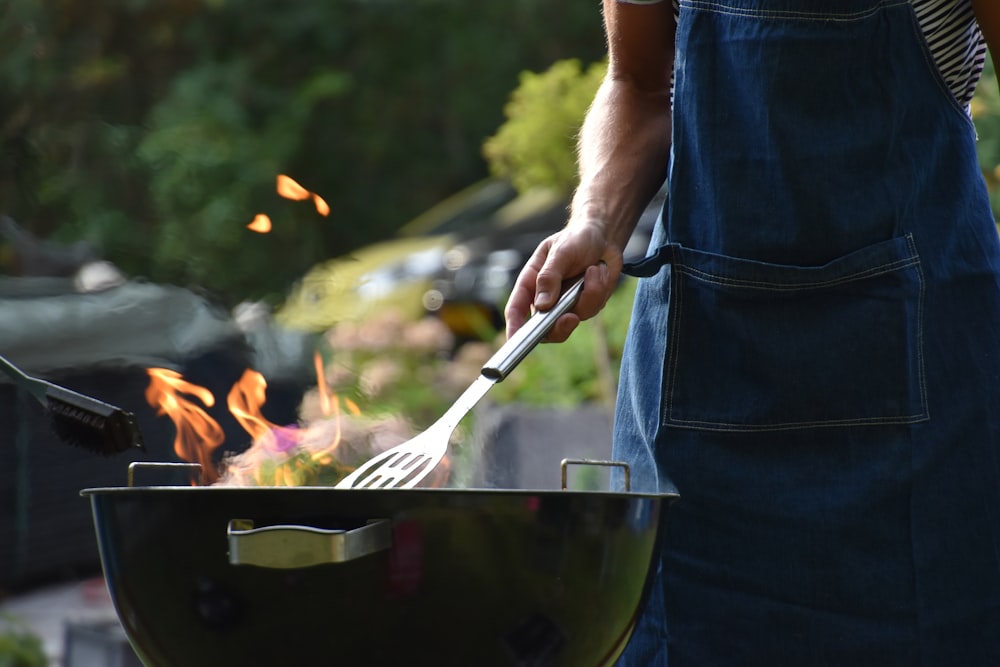Grilling: Common Problems and Solutions
Written By James Morgan
Grilling is a favorite summer pastime, but it can sometimes be frustrating. If your grill won't light, the food is undercooked or burned, or the temperature isn't right, don't give up! These common grilling problems have easy solutions. Keep reading to learn more.
1. Flare-ups
Grilling is a popular way to prepare foods, especially during the warm summer months. While it provides delicious and flavorful results, grilling can also be prone to a number of common problems, the most serious of which is flare-ups. Flare-ups occur when large pockets of flame erupt on the cooking surface, potentially causing damage to the grill and consuming lots of unnecessary fuel. Thankfully, there are steps that anyone can take to prevent flare-ups while grilling. One of the most important things to keep in mind is the type and condition of your grill; if you have an older or poorly maintained grill, it will be more likely to experience flare-ups than a newer or well-maintained one. Additionally, proper placement of food on the grill can be essential in reducing flare-ups. For example, meats that are particularly fatty or marbled should be placed farther away from hotter parts of the grill so that drippings do not contribute to unwanted flames. By understanding what causes flare-ups and taking steps to minimize their occurrence, you can safely enjoy grilling all year round.
2. Uneven cooking
Grilling is one of the most popular methods for cooking food, as it imparts delicious flavors and adds a touch of smokiness. However, one of the main challenges in grilling is achieving even cooking throughout your food. In particular, if your food cooks too quickly on one side but not so quickly on the other, you run the risk of burning and drying out certain parts while the rest remains undercooked.
Fortunately, there are some simple strategies that can help you to achieve more even cooking when grilling. For example, you can use a meat thermometer to monitor the internal temperature of your food and ensure that vulnerable areas like the inside of chicken breasts are cooked all the way through. You can also elevate certain foods off of the grill rack so that they aren't as exposed to direct heat, which will allow them to cook more slowly. Whatever method you choose, with a little bit of effort and preparation, you can ensure that your food is evenly grilled every time.
3. Food sticking to grill grates
In addition to the usual challenges of getting the temperature just right and ensuring that you have all the necessary ingredients for your favorite dishes, there is also the issue of food sticking to grill grates. This can result in burned or undercooked food, and it can also make it more difficult to clean up your grill after you are done cooking.
Fortunately, there are steps that you can take to reduce the risk of food sticking to your grates. For starters, make sure that your grates are clean before starting to cook. Grease buildup can cause foods to stick, so giving your grates a good scrub every now and then will help keep them free from residue. You should also brush any marinade or sauce onto your food rather than pouring it directly onto the grill grate. And finally, try not to use tongs or other tools that pierce your food when flipping it over – instead, use long-handled spatulas or metal tongs to get underneath without piercing the surface. With these simple tips in mind, you can enjoy worry-free grilling all summer long!
4. Lack of flavor
When it comes to grilling, one of the most common problems is the lack of flavor. This can be due to a number of factors, such as using too much charcoal or not enough spices. However, there are a few simple tips that can help you get the most out of your grill. First, be sure to use fresh charcoal that has been fully lit. This will help to give your food a smoky flavor. Second, don't be afraid to experiment with different spices and rubs. Just a few minutes of prep work can make a big difference in the taste of your grilled food. Finally, be sure to cook your food over high heat. This will help to seal in the flavors and prevent them from being lost in the smoke. By following these simple tips, you can ensure that your next grilled meal is packed with flavor.
5. Not enough smoke flavor
One of the most common problems facing grill masters is a lack of smoke flavor. While there are many factors that can contribute to this problem, one of the most common is simply not using enough wood. When grilling with wood, it's important to use enough to create a good amount of smoke, but not so much that it smothers the fire. A good rule of thumb is to use about 1 pound of wood for every hour of grilling. Another common issue is using wet or greenwood. This can cause the fire to produce more smoke than desired, leading to a bitter flavor. To avoid this, be sure to only use dry, seasoned wood. With a little practice and trial and error, you'll be able to achieve the perfect balance of smoke flavor for your next grilled feast.
6. Over/undercooking food
One of the most common problems with grilling is achieving the perfect level of doneness for different types of food. Different meats and vegetables require different cooking times in order to achieve optimal flavor and texture, but getting the timing just right can be tricky. One method for ensuring that you never over or undercook your food is to use a meat thermometer. This handy tool provides an accurate temperature reading at any point during the cooking process, allowing you to pull your food off of the grill at exactly the right moment. In addition, using a timer can help you keep track of when different ingredients go on and off the grill so that your entire meal comes out perfectly cooked every time. Whether you're an experienced griller or a novice just starting out, using these tips will help ensure that all of your grilled dishes are cooked to perfection every time.
7. Difficulty regulating heat
Any seasoned grill master will tell you that one of the most important skills to master is regulating the heat. After all, there's nothing quite as disappointing as a beautiful steak that's either burnt to a crisp or barely cooked through. However, regulating the heat on a grill can be tricky, especially if you're using charcoal. One way to help ensure consistent heat is to use a Chimney Starter. This simple tool allows you to evenly distribute coals and get them burning at just the right temperature. Another helpful tip is to keep a spray bottle filled with water on hand. This way, if the flames start to get out of control, you can quickly douse them without ruining your food. By following these simple tips, you can avoid common grilling problems and ensure that your next BBQ is a success.
8. Using the wrong fuel source
Any experienced grill master will tell you that using the right fuel source is critical to achieving the perfect cook. Different fuels will produce different results, and choosing the wrong one can ruin an otherwise perfectly good piece of meat. One of the most common problems is using charcoal briquettes instead of natural lump charcoal. Briquettes are made of wood byproducts and chemicals, which can give food a harsh, artificial flavor. Lump charcoal, on the other hand, is made of pure, natural wood. It burns hot and clean, producing a more subtle flavor that lets the true taste of the meat shine through. So if you're serious about grilling, be sure to use natural lump charcoal for the best results.
9. Ashes and sparks flying up in your face
Anyone who has ever grilled knows that it can be a messy business. Ashes and sparks often fly up into the air, making it difficult to see what you're cooking. In addition, the smoke from the grill can be irritating to the eyes and throat. There are a few things you can do to minimize these problems. First, make sure your grill is clean before you start cooking. This will help to reduce the number of ashes and sparks that are produced. Second, try to keep the grill covered as much as possible. This will help to trap the smoke and prevent it from spreading. Finally, be sure to wear protective clothing, such as gloves and sunglasses, when grilling. By taking these precautions, you can enjoy a safe and enjoyable grilling experience.
10. Rusting grill grates
While rust may not seem like a big deal, it can actually cause some serious problems for your grill grates. Rust can cause the grates to stick together, making it difficult to turn them. Additionally, rust can cause the grates to become uneven, which can lead to uneven cooking. Finally, rust can also cause the grates to break down over time, eventually leading to holes and weak spots.
While there are a number of ways to prevent rust, one of the best is simply to keep your grill clean. Make sure to scrub the grates after each use, and apply a thin layer of oil before storing the grill. By taking these simple steps, you can help keep your grill grates in good condition for years to come.

